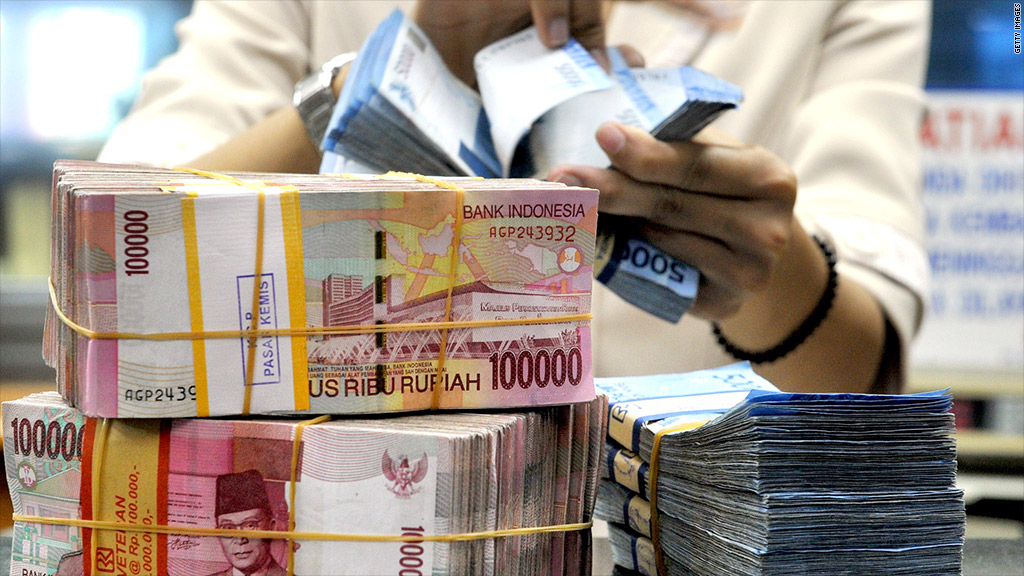
The-so called BRIC nations may need to add a fifth member: Indonesia.
Brazil, Russia, India and China were once considered the hottest emerging markets in the world. But they have been skidding this year.
Indonesia, on the other hand, remains one of the fasting growing economies thanks to a rising middle class and strong domestic consumption. In turn, investors and analysts say they expect it to stay a ripe area for investments over the short and long-term.
"Consumers are heading up the value chain and using more expensive soaps and dishwashing detergents," said Bharat Joshi, assistant investment manager of Indonesian equity funds for money manager Aberdeen, which has roughly $500 million invested there. "We're seeing companies do well that reflect the rising income levels in Indonesia."
While Indonesia's economy took a significant hit during the late 1990s Asian financial crisis, the southeast Asian country largely evaded the more recent global downturn.
Indonesia's main stock index, the Jakarta Index, has trailed the S&P 500 only slightly over the past two years. It's returned 19%, compared to the S&P 500, which is up 20%.
More importantly, analysts say Indonesia and its growing middle class is buffered from some of the pressures hitting other fast-growing nations. Unlike many of its neighbors, the country's growth isn't solely dictated by exports. Instead its growing middle class is fueling something of a virtuous cycle where more goods and services are produced and purchased in rapidly urbanizing cities throughout the archipelago.
The Indonesian government has tamed inflation even as domestic growth has chugged along at roughly 6% per year over the past few years. That's expected to continue.
McKinsey & Co. predicts that Indonesia will be the 7th largest economy in the world and add 90 million additional members to its middle class by 2030. Right now, there are 45 million middle class Indonesians, and it ranks as the 16th largest economy in the world.
Many of the companies represented in the Jakarta index are commodities companies, as Indonesia is one of the top producers of coal and palm oil in the world. That could make Indonesia's stock market more vulnerable to macroeconomic swings since commodities companies are more dependent on global growth.
But Indonesia's banks and consumer products companies are still expected to report sharp growth, analysts said. Astra, Indonesia's largest auto dealer and a holder of stakes in local banks, is among the companies likely to benefit from the continued growth of the middle class. Unilever Indonesia, a majority-owned subsidiary of British-Dutch consumer products giant Unilever (UL) is another.
Aberdeen's Indonesian funds are up roughly 20% year-to-date by finding small and medium-sized "value" companies, Joshi said. Among them: Holcim, the local subsidiary of a Swiss cement company, and Multi Bintang Indonesia, the local subsidiary of Heineken. Those stocks are up 28% and 96% respectively.
One way for U.S. investors to gain easy access to Indonesia is through ETFs. Two major ETFs are Market Vectors Indonesia Index ETF (IDX) and iShares MSCI Indonesia Investable Market Index Fund (EIDO). Their returns have underperformed the Jakarta Index this year though.
As is the case with many emerging markets, there are still many risks. Indonesia has made a big push to clean up corporate governance issues with many of its companies, but more may need to be done to attract more capital to the country.
"We've seen reforms in Indonesia but they're not always deep enough," said Dhiren Shah, a portfolio manager at Blackrock focusing on Indonesia. "The challenges are that it's still a young market with not as much liquidity or turnover as we'd like to see in stocks or the stock exchange."






